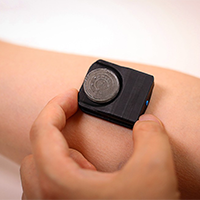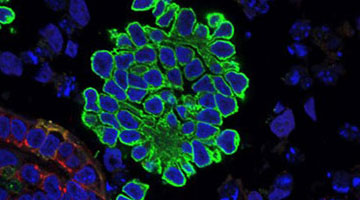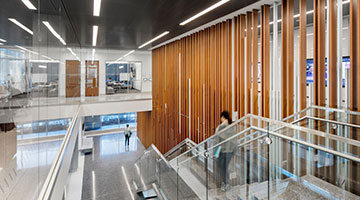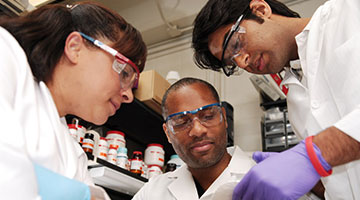By Amanda Morris, Northwestern Now 4/9/25

Northwestern University researchers have developed the first wearable device for measuring gases emitted from and absorbed by the skin.
By analyzing these gases, the device offers an entirely new way to assess skin health, including monitoring wounds, detecting skin infections, tracking hydration levels, quantifying exposure to harmful environmental chemicals and more.
The new technology comprises a collection of sensors that precisely measure changes in temperature, water vapor, carbon dioxide (CO2) and volatile organic compounds (VOCs), which each give valuable insight into various skin conditions and overall health. These gases flow into a small chamber within the device that hovers above the skin without actually touching it. This no-contact design is particularly useful for gathering information about fragile skin without disturbing delicate tissues.
The study, published in the journal Nature, demonstrates the device’s efficacy across small animals and humans.
“This device is a natural evolution of our lab’s wearable electronic devices that collect and analyze sweat,” said Northwestern’s John A. Rogers, who co-led the study. “In that case, we were analyzing sweat to learn about the wearer’s overall health. While useful, that method requires pharmacological stimulation of sweat glands or exposure to a hot, humid environment. We started thinking about what we could capture from the skin that is naturally occurring all the time. It turns out there are all kinds of things coming off the surface of the skin — water vapor, carbon dioxide and volatile organic compounds — that can be correlated to underlying physiological health.”
“This technology has the potential to transform clinical care, particularly for vulnerable populations, including newborn babies, the elderly, patients with diabetes and others with compromised skin,” said Northwestern’s Guillermo A. Ameer, who co-led the study. “The beauty of our device is that we found a completely novel way to assess the status of delicate skin without having to come in contact with wounds, ulcers or abrasions. This device is the first major step toward measuring changes in gases and correlating those changes with skin status.”
Read the Complete Story




